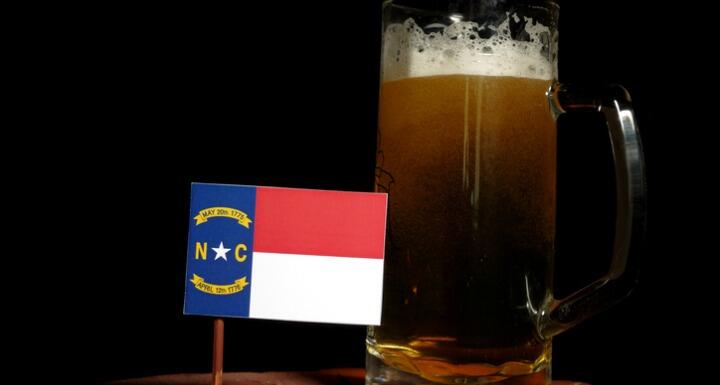Yesterday, June 4, 2015, the North Carolina House of Representatives voted to approve House Bill 909 ("HB 909"), An Act to Make Various Changes to the Alcoholic Beverage Control Commission Laws. This vote means HB 909 is headed to the Governor's desk for signature. The bill is one of the most dramatic changes to the Alcohol Beverage Control Commission laws that has been passed in some time. If signed by the Governor, HB 909 will make significant changes that impact breweries and distilleries, as well as those wishing to sell cider in growlers, antique spirituous liquor, and powdered alcohol. Below is a summary of the provisions of the bill:
- Alternating Proprietorships - Allows brewery permit holders to engage in alternating proprietorship arrangements. This means a brewery permittee will now be permitted to lease or otherwise make its brewery space available to another person or entity that holds a brewery permit. The alternating proprietorship model, however, cannot be used as a means of allocating production quantities between affiliated breweries to obtain a malt beverage wholesaler permit pursuant to G.S. 18B-1104(8) where either brewery would not otherwise qualify for the permit. Alternating proprietorships have long been permitted under federal law and this amendment brings North Carolina law in line with this practice.
- Contract Brewing - Allows brewery permit holders to engage in contract brewing arrangements outside of North Carolina. This means a brewery permittee will now be permitted to receive and sell malt beverages produced for it by a contract brewery located within or outside of North Carolina. The contract brewing model, however, cannot be used as a means of allocating production quantities between affiliated breweries to obtain a malt beverage wholesaler permit pursuant to G.S. 18B-1104(8) where either brewery would not otherwise qualify for the permit. Similar to alternating proprietorships, contract brewing has long been permitted under federal law and this amendment brings North Carolina law in line with this practice.
- Distillery Sales - Allows distillery permit holders that manufacture less than 100,000 proof gallons per year to sell spirituous liquor distilled at the distillery to visitors who tour the distillery for consumption off the premises. The sales may only take place at a distillery located in a county or municipality that has an approved ABC Store. The spirituous liquor must be listed as a code item for sale in North Carolina, be sold at the price set by the Commission, and have affixed to the bottle a sticker that bears the words "North Carolina Distillery Tour Commemorative Spirit." Consumers may only purchase one bottle of spirituous liquor per 12-month period from the distillery. The distillery is required to maintain a searchable record keeping system that tracks customer names, drivers license numbers, and dates of birth.
- Cider - Allows holders of on-premises unfortified wine, off-premises unfortified wine, and wine shop permits to now sell cider in growlers for consumption off the premises.
- Nonresident Wholesaler Rules - Makes clear that the holder of a brewery permit may sell malt beverages to a nonresident wholesaler, nonresident malt beverage vendor, bottler, or other similar party for resale in North Carolina, if the malt beverages are shipped from the brewery to a wholesaler licensed under G.S. 18B.
- Powdered Alcohol - Makes it unlawful for any person to manufacture, sell, transport, import, deliver, furnish, purchase, consume, or possess powdered alcohol. Powdered alcohol is any powder or crystalline substance capable of being converted into a liquid alcoholic beverage fit for human consumption.
- Antique Spirituous Liquor Permit - Creates a new type of retail permit known as an antique spirituous liquor permit that will allow a retailer to sell at retail antique spirituous liquor for use in mixed beverages for consumption at the retailer's business. Antique spirituous liquor is spirituous liquor that has not been in production or bottled in the last 20 years and that it is in the original manufacturer's unopened containers, not owned by a distillery, and not otherwise available for purchase by an ABC Board.
- Eastern Band of Cherokee Indians - Adds provisions to allow the Eastern Band of Cherokee Indians to issue certain commercial alcohol beverage permits and makes clear that the tribal alcoholic beverage control commission shall have sole enforcement authority over any permittee receiving a permit from the tribal abc commission.
- Guest Cabinet Permits to Certain 18-Hole Golf Courses - Allows the Commission to issue guest room cabinet permits to an 18-hole golf course that (1) holds a mixed beverages permit or is located in a county where ABC stores have been established, but in which the sale of mixed beverages has not been approved; (2) has management contracts for the rental of living units; and (3) is located in a county that has a population in excess of 20,000 people by the last federal census.
- Rulemaking - Tasks the North Carolina Alcohol Beverage Control Commission with writing and adopting temporary rules for the antique spirituous liquor sales and on-site distillery sales.





